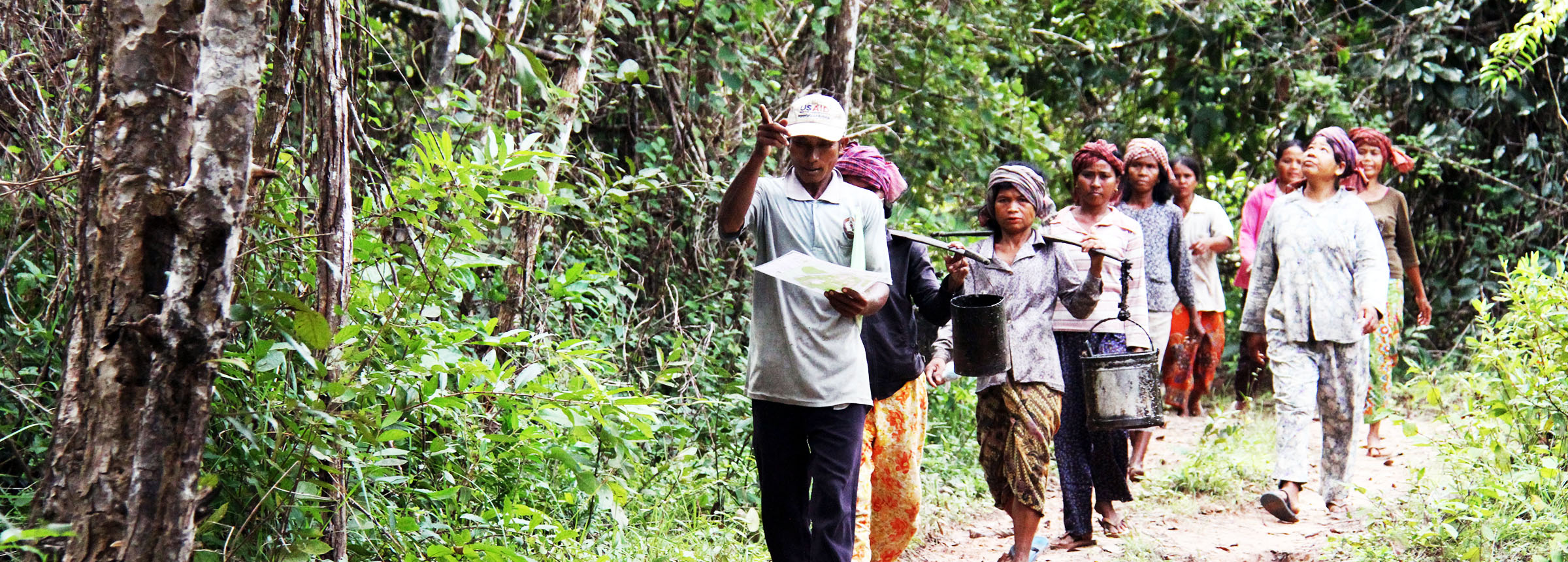Search Results for can

Myroxylon: balsam and much more
page
NFTA 95-03, June 1995 A quick guide to useful nitrogen fixing trees from around the world Native to Central and South America, representatives of Myroxylon are used in folk medicine, as shade trees for cultivated crops, ornamentals, and for fine timber. Balsam and its essential oil are used to flavor baked goods, candy, chewing gum, […]
Moringa oleifera: A Perfect Tree for Home Gardens
page
A publication of The Agroforestry Information Service 1010 Holomua Road, Paia, Hawaii 96779-6744 USA April 1993 Moringa oleifera, commonly called the ‘drumstick tree’, is well known for its multi-purpose attributes, wide adaptability, and ease of establishment. Its leaves, pods and flowers are packed with nutrients important to both humans and animals. Botany. Drumstick is a […]
Mimosa scabrella – The Tree that Fueled the Railroads of Brazil
page
NFTA 88-01, March 1988 A quick guide to useful nitrogen fixing trees from around the world In the early 1900s Brazil’s steam locomotives ran on wood from plantations of Mimosa scabrella, commonly known as “Bracatinga”. Today, this fast-growing species is being planted in highland – areas around the world for fuelwood, lumber, charcoal, honey, fence […]
Leucaena Psyllids – A Review of the Problem and its Solutions
page
Psyllids have caused severe damage since late 1982 to Leucaena in tropical and subtropical areas outside their native range in the Americas. Many farmers, especially in parts of South and Southeast Asia, have been particularly hurt by these “jumping plant lice” that have defoliated their fodder and green manure trees. More damage is expected as […]
Leucaena leucocephala – a versatile nitrogen fixing tree
page
FACT 97-06, September 1997 A quick guide to multipurpose trees from around the world Among about 700 trees now known to fix nitrogen, none are more versatile than Leucaena leucocephala. This lowland tropical American legume circled the globe four centuries ago. In Latin America it served as a food source (beans). Now it serves worldwide […]
Growing Leucaena
page
Leucaena trees will fully repay your efforts to obtain uniform germination and good establishment. Like other trees, leucaena establishes slowly, and “tender loving care” is advisable. Seed Source/Provenances. NFTA has a tremendous number of varieties of leucaenas available, and specific ones are recommended for different uses and environments. These recommendations are continually being revised as […]
Leucaena diversifolia – Fast Growing Highland NFT Species
page
NFTA 92-05, October 1992 A quick guide to useful nitrogen fixing trees from around the world Leucaena diversifolia is the second-best known species in the genus Leucaena. Through numerous international tree trials, it has gained a reputation for aggressive growth at cool or high elevation sites where L. leucocephala performs poorly. It is a common […]
Leucaena: An Important Multipurpose Tree
page
NFTA 90-01, May 1990 A quick guide to useful nitrogen fixing trees from around the world In the early years of its planting, leucaenas were often called ‘miracle trees” for their success as fast-growing, multipurpose, nitrogen fixing trees in the tropics. Several leucaena species are characterized by rapid growth, are highly palatable to animals, and […]
Improving Markets for Farm Forestry Products
page
FACT 98-02, January 1998 A quick guide to multipurpose trees from around the world Traditionally, forestry development programs have focused on improving production and not on the products and their marketing. These programs have successfully raised production levels, but have not been successful in helping farmers meet marketing needs. Producers often lack understanding of basic […]
Juliflorae acacias – new food source for the Sahel
page
NFTA 93-01, March 1993 A quick guide to useful nitrogen fixing trees from around the world The seeds of certain Acacia species were an important traditional food resource for Australia’s desert Aborigines (Crawford, 1982; O’Connell et al., 1983; Latz, 1984; Brand and Cherikoff, 1985; Orr and Hiddens, 1987). According to a recent review (Thomson, 1992), […]